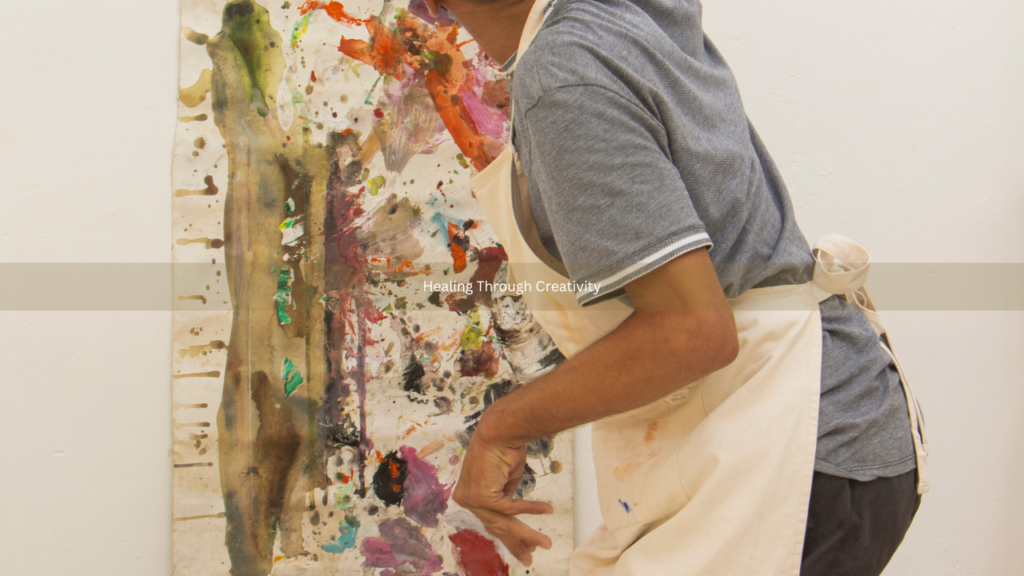
Addiction recovery is a challenging journey that requires a multi-faceted approach, addressing both the physical and psychological aspects of addiction. While traditional methods such as counseling, medication, and support groups are crucial, there is a growing recognition of the healing power of creative therapies, particularly art therapy. Art therapy, an expressive therapeutic technique that allows individuals to use creativity as a tool for self-expression and emotional release, has proven to be highly effective in addiction recovery. By engaging with the creative process, individuals in recovery can explore their inner emotions, cope with past trauma, and rebuild their sense of self-worth.
What Is Art Therapy?
Art therapy involves the use of artistic methods to foster emotional healing and personal growth. It does not require artistic skill; the focus is not on the final product but rather on the process of creating. In the context of addiction recovery, art therapy provides a safe, non-verbal way for individuals to express emotions that may be too complex or painful to articulate through words. It allows them to explore their thoughts, experiences, and challenges in a creative and therapeutic setting.
Through painting, drawing, sculpting, or other forms of visual art, individuals are encouraged to tap into their emotions, reflect on their behaviors, and confront difficult issues related to their addiction. For many, art therapy becomes a crucial outlet for processing their experiences, especially when verbal expression feels inadequate or overwhelming.
Benefits of Art Therapy in Addiction Recovery
- Emotional Expression
Addiction often stems from unresolved emotional pain, trauma, or mental health issues. Art therapy offers a way for individuals to express feelings such as shame, guilt, anger, and fear without needing to find the right words. The creative process can reveal deep-seated emotions, giving individuals a new way to understand their struggles and begin the healing process. - Reduced Stress and Anxiety
Engaging in creative activities has been shown to reduce stress and anxiety levels, which are common triggers for substance abuse. Art therapy provides a calming and therapeutic experience that can help individuals feel more grounded and centered during recovery. By focusing on a creative task, they can find temporary relief from cravings, negative thoughts, and stressors that might otherwise lead to relapse. - Building Self-Esteem and Confidence
Addiction often erodes an individual’s sense of self-worth. Through art therapy, individuals can rediscover their creativity and capabilities, which can improve self-esteem. Completing an art project, regardless of artistic ability, offers a sense of accomplishment. As they progress through therapy, individuals in recovery gain confidence in their ability to cope with emotions, face challenges, and rebuild their lives. - Exploration of Identity and Purpose
Art therapy helps individuals in recovery explore who they are outside of their addiction. It encourages them to delve into their personal experiences, relationships, and aspirations. This self-exploration can lead to greater self-awareness and clarity regarding their values and goals. In turn, this fosters a stronger sense of purpose, which is essential for long-term recovery. - Community and Connection
In group settings, art therapy provides a shared space for individuals in recovery to connect with one another. Group art therapy sessions foster a sense of community and mutual understanding, reducing feelings of isolation. Creating art together can also strengthen bonds between individuals who may feel disconnected from their support systems due to the stigma of addiction.
Conclusion
Healing through creativity offers a powerful and transformative approach to addiction recovery. Art therapy provides a unique opportunity for individuals to express, explore, and heal in ways that traditional therapy may not reach. By using creative expression as a pathway to emotional healing and personal growth, individuals in recovery can gain a deeper understanding of themselves, develop coping strategies, and foster resilience in their ongoing journey toward sobriety. As a complementary tool in addiction treatment, art therapy holds immense promise for supporting long-lasting recovery and well-being.